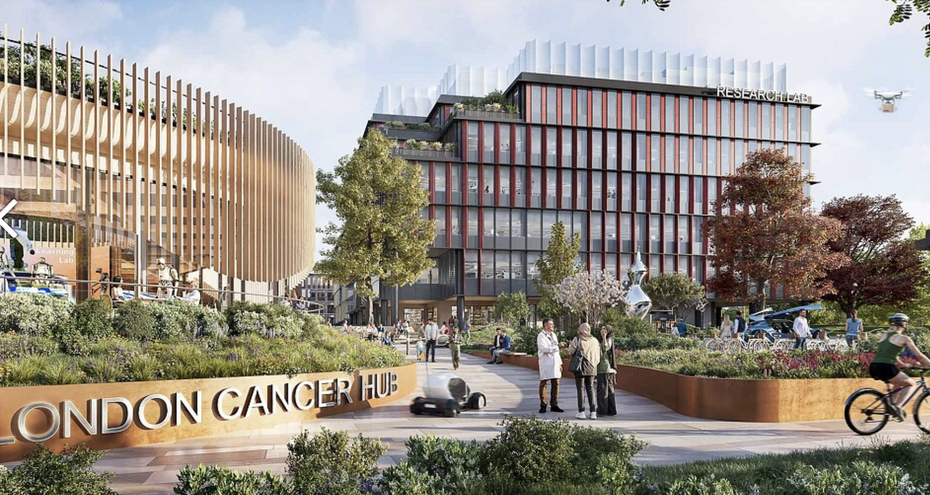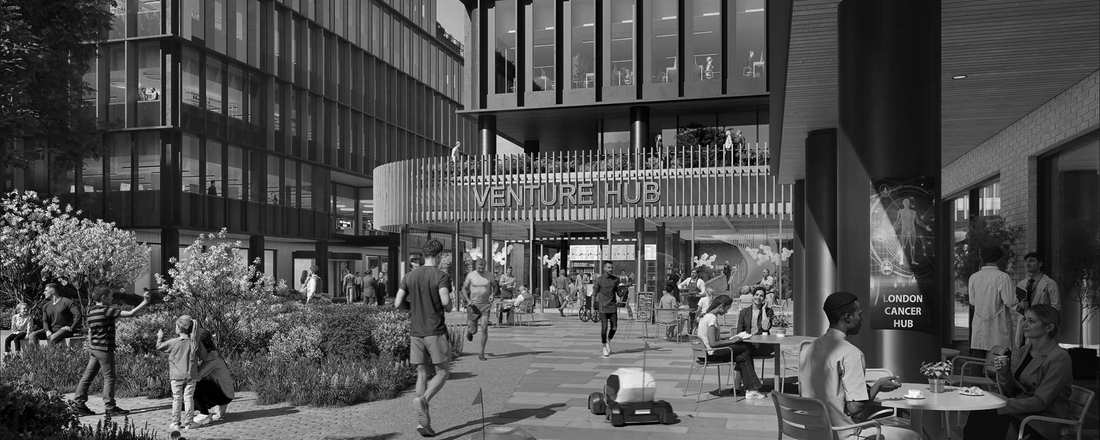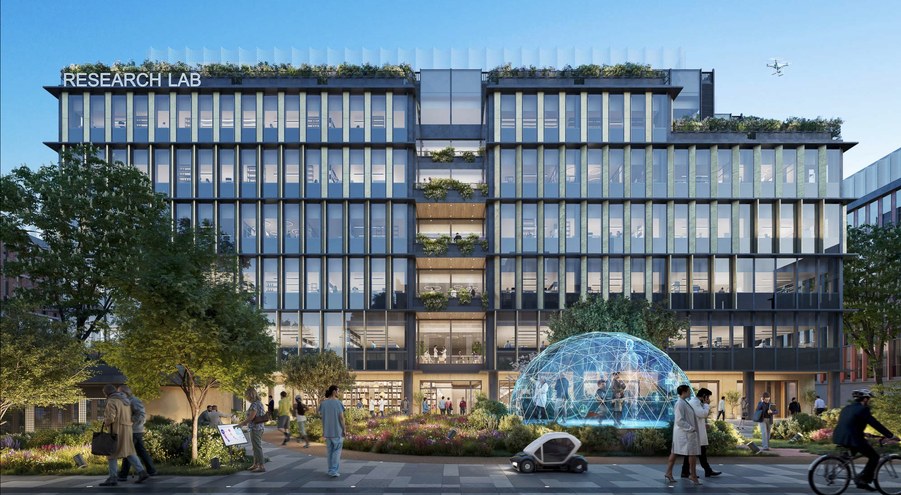Get updates from The Developer straight to your inbox Yes, please!
If we want to create inclusive, supportive and safe places, we can't ignore trauma
Olaide Oboh, director of mixed-use developer Socius, speaks about trauma-informed practice and why they are exploring the process on the £1bn London Cancer Hub

You are walking down a pale green corridor when you feel a sharp pain in your chest. You’re dizzy, can’t breathe. What’s happening?
It’s a panic attack, set off by a shade of paint used in a hospital you visited in crisis as a child; your body remembers.
For those who’ve experienced trauma – and that’s a majority of us – the built environment can trigger powerful involuntary reactions.
An estimated 50-70% of people experience a trauma at some point in their lives and may be triggered by stimuli – sights, sounds or spaces – linked to the event. Being triggered can have both an immediate and longer-term impact such as intrusive thoughts, insomnia, depression or a flight, fight or freeze response.
Working with an awareness of triggers and trauma is referred to as being ’trauma-informed’. The government agreed a definition of trauma-informed practice in 2022 with a view to its adoption in all frontline services.
But in architecture and the built environment, trauma awareness is only nascent.
Love what we do? Please consider supporting us as a member to keep our content free, inclusive and challenging.
To date, there has only been one trauma-informed building completed in the UK – Hope Street housing, commissioned by the charity One Small Thing and designed by Snug Architects. Housing women in the justice system, the building avoided pastel colours and rounded reception desks to avoid triggering memories of institutions – an insight that emerged during co-design sessions. Hope Street won the RIBA MacEwen Award in 2024, a national award for architecture for the common good.
One Small Thing gave a workshop on trauma-informed design at the Festival of Place, and that’s where Olaide Oboh, director of mixed-use developer Socius and managing director of Populate, became interested in the approach.
“The lightbulb went on,” says Oboh in an interview for The Developer Podcast. “Cancer is a trauma,” Oboh says.
Oboh is working on the £1bn London Cancer Hub in Sutton, a development in partnership with Aviva Capital Partners that brings together The Institute of Cancer Research with The Royal Marsden NHS Foundation Trust – a centre for cancer treatment. Gensler is leading on design of the development which will include research and laboratory spaces, healthcare, homes and public realm.

Oboh arranged training for the whole design team on trauma-informed practice, which led to deeper engagement and a reconsideration of lobbies, corridors, public spaces and wayfinding on the project.
“Trauma-informed training also pushed us to bring in the voices of people with lived experience of cancer,” Oboh adds. “We spoke to the patient and the practitioner, because someone who’s day in, day out, treating people, giving bad news, sometimes good news, they also have a lot of trauma to deal with.”
“I was really pleased that my design team leaned into that, understood it and thought about what it meant for them,” says Oboh.
Because talking about an event can be re-traumatising, taking an informed approach to community engagement and co-design is considered critical – for both participant and facilitator.
Katherine Lawrence from One Small Thing has suggested those leading community engagement should promote choice and empowerment in conversations, emphasising that participation is voluntary. She also suggests moderators “watch for verbal and non-verbal signs of a trauma response such as restlessness, avoidance, shifts in tone, pace or engagement” – and be prepared to take a break and “ensure the participant is OK”.
It’s also important to recognise that facilitators can be affected by the stories they hear, too – listening to trauma can be traumatic.
Oboh says the training taught her that she doesn’t need to hear the whole story: “We ask really focused questions on what would be helpful going forward to support them.” The focus is on healing and really listening to what the participant needs from the built environment to feel safe and supported, not digging into the trauma itself.
The training also unlocked conversations within the design team about their own experiences. “I don’t think anyone in our team hasn’t been affected in some way, shape or form, directly or indirectly, [by cancer],” says Oboh.
The training has revealed how the London Cancer Hub must not just offer excellence as a clinical setting for treatment and research, but as a place that promotes safety and supports mental health.
“How do we make people feel safe in our spaces rather than just designing them because they look nice?” asks Oboh. “Some of it is about transparency. People who have suffered trauma – sometimes that’s physical violence or abuse – need exits to be really clearly signposted.”
“There’s a desire in all of us to make sure that we are doing the best that we can to create a physical place to enable healing.”
Listen to the podcast to hear the full conversation and subscribe wherever you get your podcasts. Sign up to The Developer Weekly email to find out when new episodes of The Developer Podcast go live and more.
Sign up to The Developer Weekly email to find out when new episodes of The Developer Podcast go live. You can get episodes early and our magazine when you support our podcast on Patreon at www.patreon.com/thedeveloperuk
If you love what we do, support us
Ask your organisation to become a member, buy tickets to our events or support us on Patreon
Sign up to our newsletter
Get updates from The Developer straight to your inbox
Thanks to our organisation members
© Festival of Place - Tweak Ltd., 124 City Road, London, EC1V 2NX. Tel: 020 3326 7238

